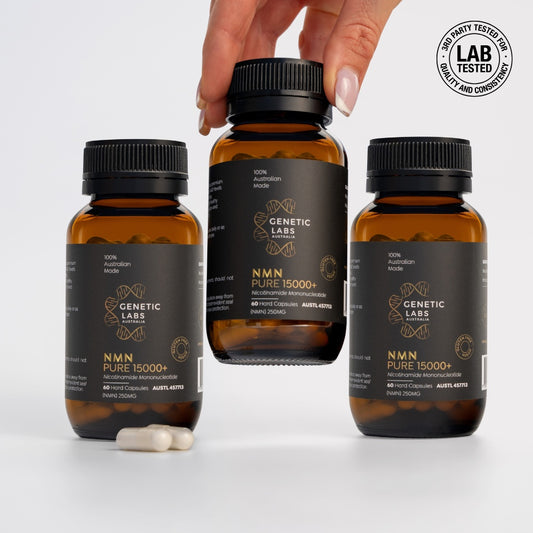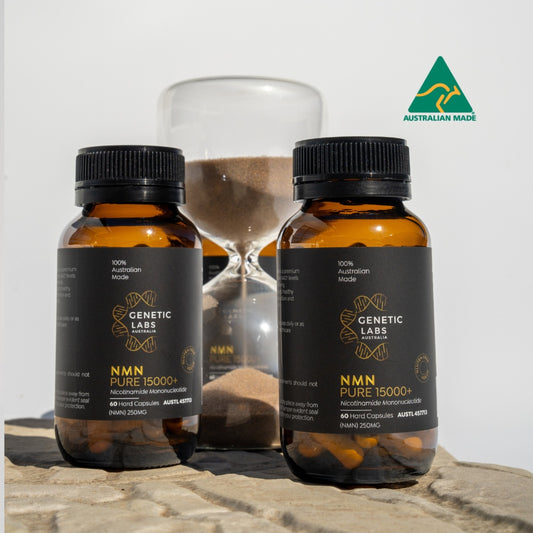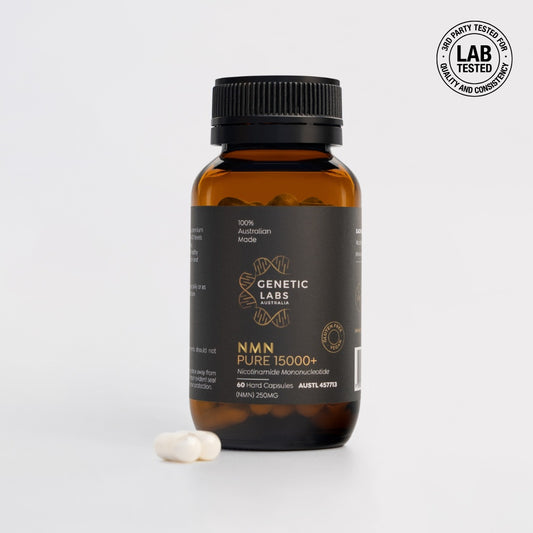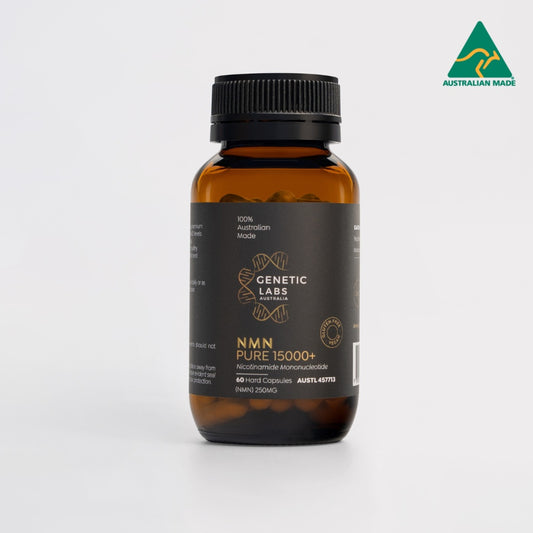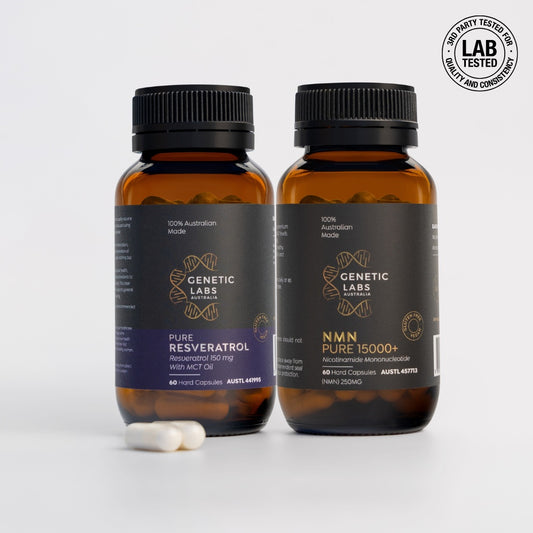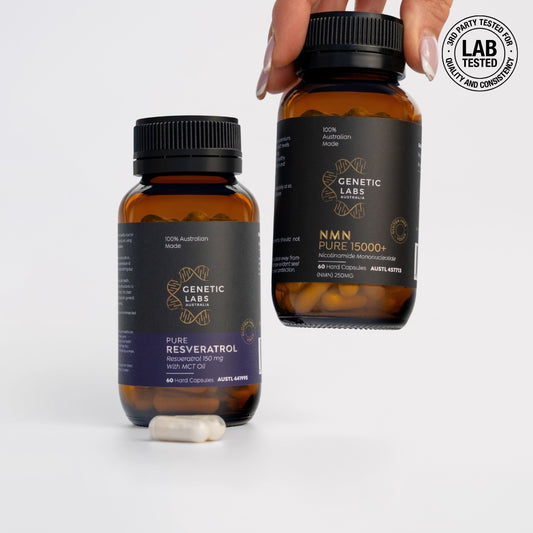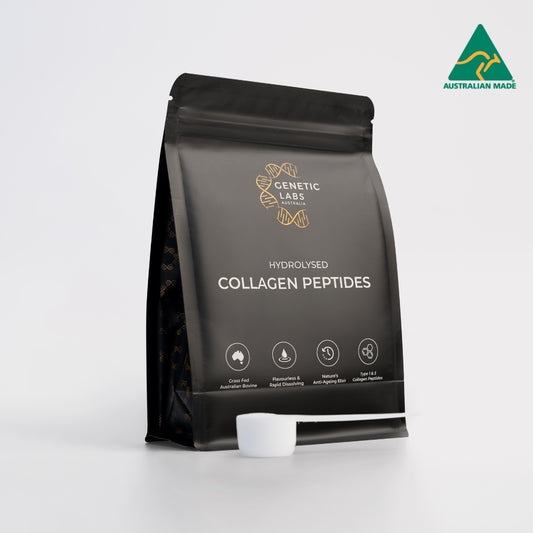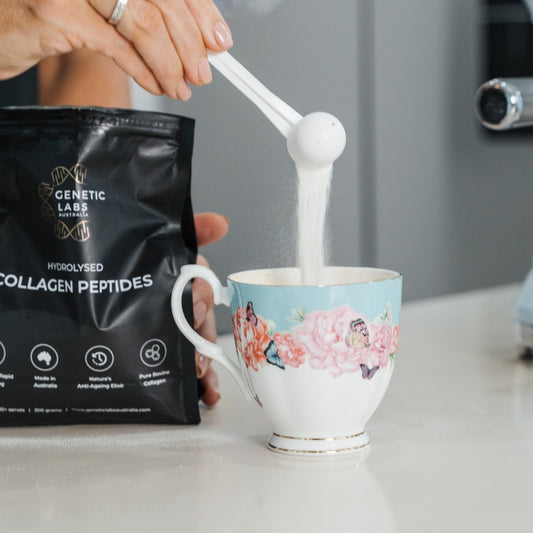In a world increasingly focused on healthspan and longevity, Australian NMN (Nicotinamide Mononucleotide) is carving out a critical role as a global leader in NMN production. Following the United States FDA's decision to restrict NMN from being marketed as a dietary supplement, Australia's regulatory landscape and manufacturing standards have positioned it as a trusted source for NMN exports to the US. While NMN distribution in Australia remains compliant with local regulations, this article explores how Australian-made NMN is legally exported to meet the ongoing demand from American consumers.
The Regulatory Challenges of NMN in the US
NMN, a precursor to the coenzyme NAD+ that plays a critical role in cellular energy and metabolism, gained global attention for its potential anti-ageing benefits. Research suggested that NMN may improve energy levels, support cognitive function, and even influence lifespan through its impact on NAD+ levels.
However, in late 2022, the FDA reclassified NMN as a pharmaceutical ingredient under clinical investigation, thereby prohibiting its sale as a dietary supplement. This decision removed NMN from over-the-counter shelves in the US, leaving consumers and health enthusiasts searching for alternatives.
Australia’s Regulatory Framework: A Different Path for NMN
Unlike the US, Australian authorities continue to allow the manufacture of NMN as a dietary supplement. This distinction reflects Australia’s cautious yet progressive approach to health supplements, where NMN is recognised for its potential benefits and is governed by Good Manufacturing Practices (GMP) to ensure safety and quality.
Australian manufacturers adhere to strict production standards, offering a product that meets the expectations of international markets, including the US. The country’s rigorous compliance with the TGA, GMP and third-party testing underscores the high purity and safety of Australian NMN.
Meeting Global Demand: Australian NMN Exports to the US
Despite the FDA ban, the demand for NMN in the US remains robust, driven by health-conscious consumers seeking its potential benefits for healthy ageing. Recognising this unmet need, Australian manufacturers, such as Genetic Labs Australia, have stepped in to legally export NMN to American consumers.
This export process is entirely compliant with international trade laws, ensuring that US customers can legally purchase Australian NMN despite its restricted status within the US market. Australian NMN supplements, backed by GMP-certified manufacturing processes, offer a premium alternative for American consumers prioritising quality and safety.
Why Choose Australian NMN?
Australian NMN is rapidly gaining traction for its exceptional quality, reliability, and compliance with international standards. Key reasons why Australian NMN stands out include:
- TGA and GMP Certification: Manufactured under Australia’s Therapeutic Goods Administration (TGA) standards, combined with strict Good Manufacturing Practices (GMP). This ensures safety, purity, and reliability.
- Enhanced Trust: Backed by Australia’s globally respected regulatory framework, making it a safe and trusted option for export to the US.
- Sustainability: Produced using sustainable manufacturing methods, including advanced fermentation processes.
- Global Recognition: Legally exported to countries like the US, filling the gap created by the FDA’s restrictions.
The Science Behind NMN and Ongoing Research
The regulatory challenges have not slowed scientific inquiry into NMN’s potential benefits. Ongoing studies explore NMN’s effects on:
- Metabolism: Enhancing mitochondrial function and energy production.
- Cognitive Health: Supporting brain health and potentially improving memory and focus.
- Cellular Ageing: Promoting DNA repair and reducing oxidative stress.
For health-conscious consumers aged 40–70, NMN continues to be a promising supplement for maintaining vitality and longevity. While the US market grapples with its regulatory limitations, Australian NMN represents an opportunity for Americans to access the benefits of this molecule through trusted, legally exported sources.
Navigating the Regulatory Landscape for NMN Export
The rise of Australian NMN as a trusted export highlights the complexities of the global health supplement industry. Amidst regulatory hurdles in the US, Australian manufacturers are meeting demand while adhering to the highest standards of compliance and quality.
Genetic Labs Australia, a leader in NMN production, exemplifies how Australian companies are bridging this gap. By exporting high-quality NMN to the US, they ensure that consumers continue to have access to this cutting-edge supplement, even amidst evolving regulatory frameworks.
Supporting Longevity with Australian NMN
As the story of NMN unfolds globally, Australian manufacturers are at the forefront of providing legal, high-quality NMN supplements to international markets. For American consumers navigating the impact of the FDA ban, Australian NMN offers a trusted and compliant solution.
By focusing on rigorous manufacturing standards, legal export processes, and ongoing research, Australia is not just meeting demand—it’s redefining the global landscape for longevity supplements.
The information presented in this article is provided for your general knowledge only and should not be treated as medical advice. Genetic Labs Australia encourages readers to consult with a qualified healthcare professional for any health concerns. Decisions regarding your health and wellness should not be based solely on the content of this site or our products. We urge you to always prioritise direct guidance from medical professionals.


